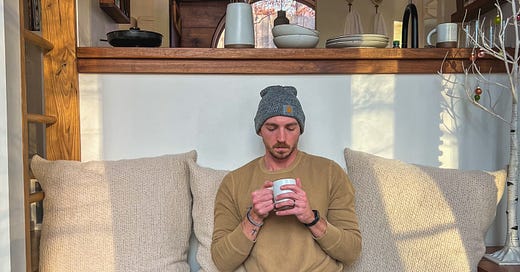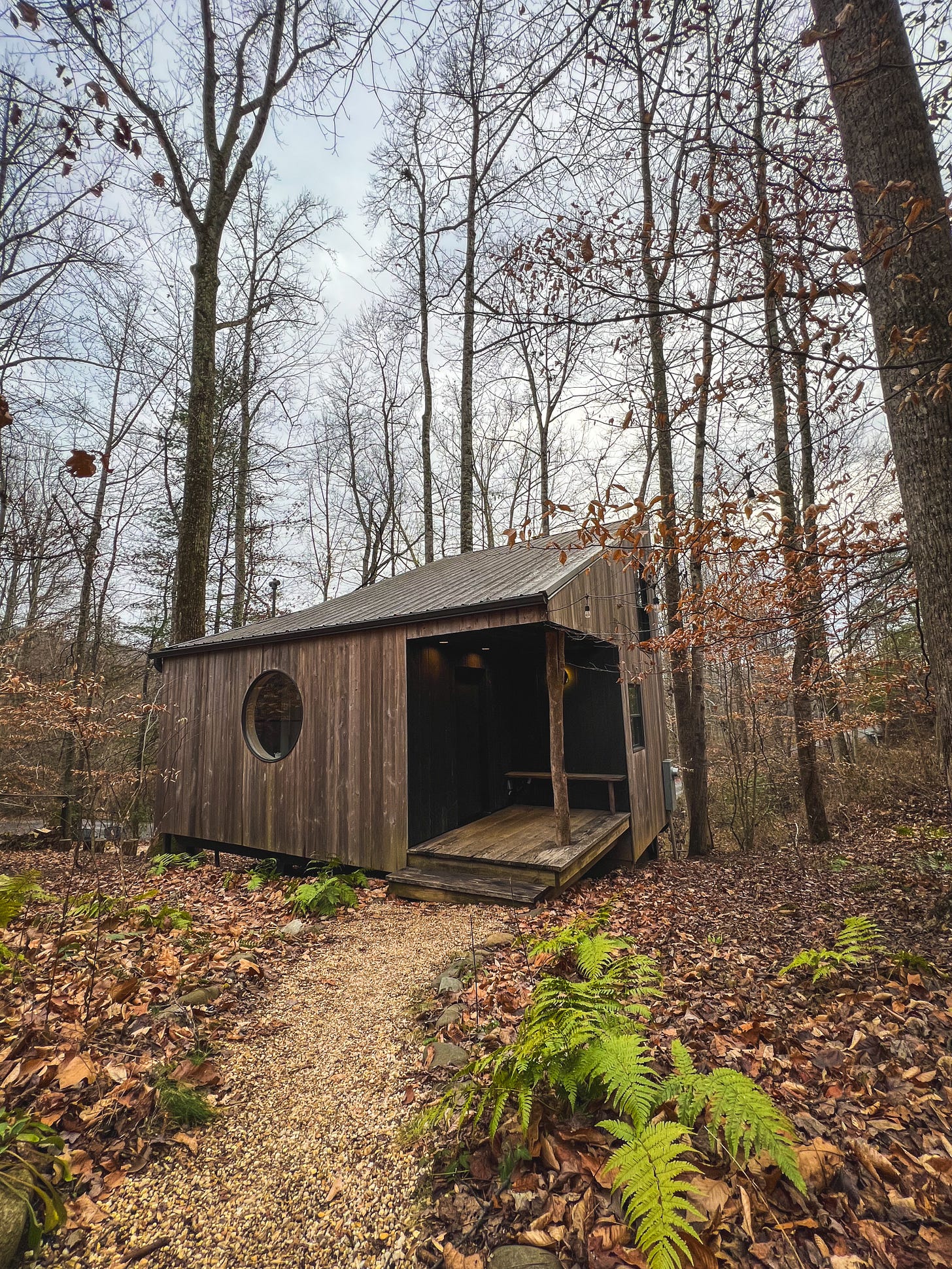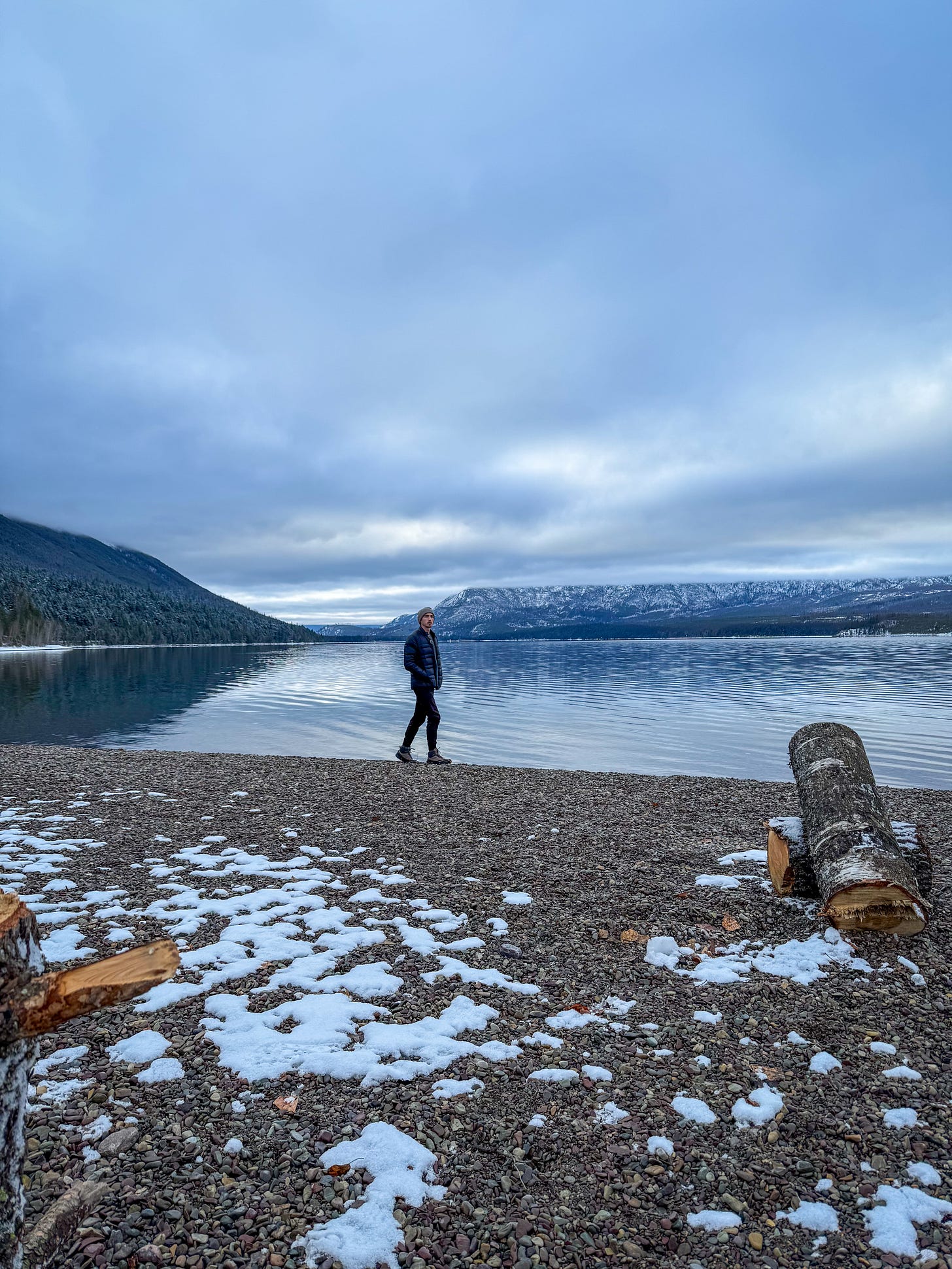“Without solitude it is virtually impossible to live a spiritual life.”
- Henri Nouwen
The noise and hurry of the world is suffocating our souls.
Not just because we’re deprived of the peace and calm that quiet provides. But also because we so rarely visit the refining fires of silence and solitude, where God wrestles our false identities into submission and resuscitates who we were meant to be.
Solitude is the foundational spiritual discipline on which all others are built. Yet we tend to spend our lives rattling around a manic cage of distraction, stimulation and input. In that frenetic busyness we lose touch with ourselves and with God. Solitude is the beginning of our way back.
The practice is as basic as it is essential. Jesus himself modeled it, let alone sages and mystics spanning millennia and all faith traditions. Solitude is dangerously simple and surprisingly demanding, but we are ALL made better by weaving silence and stillness into the rhythms of our lives. We become more present, less anxious; more centered, less frantic; more patient, less hurried. Even small moments—even individual breaths—can bring healing. But sometimes we need more than a moment.
The solitude retreat has become a powerful yearly ritual for me. It’s both relaxing and intense, empowering and humbling. There’s nothing else in my life that simulates a couple days completely at attention in God’s presence. And there’s nothing else that reveals to me, once again, just how hard it is to simply be.
In the same way that a weeklong vacation does not replace the need for healthy rhythms of rest in our normal day to day life, a solitude retreat is not a panacea. But I've found that taking a couple of days to reset is a powerful way to end the year, to prepare my heart and mind for the next season, and always fosters more small moments of solitude in my life after I've come home.
Before You Go
1 - Pick your place.
You don't have to go deep off the grid, but find something with some seclusion. Being in and around wild places is important, too. We all know that spending time in nature is restorative.
I usually use AirBnB to find a cabin or tiny home that's easy to get to but enough off the beaten path that I can feel alone and undistracted. Most years I end up somewhere in the mountains of Western NC.
2 - Clear the decks.
I'm never as ferociously productive as I am the week before I go on a solitude retreat—clearing out inboxes, cleaning up loose ends, and finishing lingering projects and chores I’ve been procrastinating.
I'm trying to spare myself the distraction and anxiety that comes from randomly remembering things I need to do or forgot to do while I’m gone. Nothing spoils a solitude retreat more than worrying about what I'm coming back to. Leave nothing hanging over your head or looming.
3 - Supply ahead of time.
I shop beforehand or on my way with the goal to have everything I need for the duration of the retreat so that I don’t have to commute into town unless I want to. Food to cook and eat, plenty of water, coffee, tea, wine, and anything else I may need.
Beyond that, I keep things very simple: a good journal and pen, yoga mat, a Bible, maybe one good book (that I rarely end up reading).
4 - Get your mind right.
As you’ll see in the next section, I don’t recommend a lot of intensive reading or study while on retreat. But it’s good to engage with things ahead of time that will help you go in with the right mindset.
Ruth Haley Barton’s “Invitation to Silence and Solitude” is the best introduction to this practice and I highly recommend it.
Meister Eckhart’s “Book of the Heart” is a beautiful, poetic journey into intimacy with God.
I’d also recommend revisiting these posts:
While You’re There
1 - Refuse pressure.
The first time I did a solitude retreat, I was hilariously overambitious.
In two days I expected to spend hours in prayer and meditation, journal reflections from the entire book of Job, brainstorm creative ideas for what I would work on in my next year, and maybe even write some poetry. I expected to come home with crucial new clarity from God on my next season, and answers to all the lingering questions I had been praying about.
By the end, very few of those expectations had come to be, and I spent the majority of the time trying not to feel like a failure.
Pressure is the enemy of presence. The hardest thing to break is our self-imposed demand to produce something or gain something, to prove that the time spent gave us a return. An answered prayer, a new revelation from God, clarity for the next season, etc. Those are all wonderful things, and you may get some of them. But don’t set up a scoreboard for your retreat and grade it as a success or failure based on any of those. That kind of achievement-based thinking is exactly what this retreat is designed to detox us from.
Sometimes God speaks with words or impressions. Sometimes God speaks with silence. Being with him matters more than anything you might get out of it.
2 - Make no plans.
Everything in us wants an agenda, an itinerary, a to do list. But the point of a solitude retreat is to heal us from the manic hurry of everyday life, and to be present. To help us become human again.
I like to come with one or two gentle intentions or focuses for that time, but I resist the urge to schedule out my days. Presence, not efficiency, is the goal.
3 - Limit inputs.
All the inputs we’re exposed to on a daily basis—the noise and notifications of devices, the endless stream of images, entertainment and information, etc—have an effect of numbing us and separating us from our true, unfiltered selves.
So part of your retreat practice should include extended periods with none of those normal inputs. No music, no podcasts, no scrolling, no reading. Even good inputs like scripture and devotionals can undermine the process of becoming present with ourself again.
Sit in silence and drink coffee. Walk for a while without headphones. Contemplate. Listen. Be still.
Stillness can be excruciatingly hard. It grinds against every normal impulse that the world has conditioned in us. But it’s desperately needed, and beautifully curative to our weary souls. A retreat is not just a time of peaceful rest, it’s also a workout, a training session. And training the practice of stillness can be transformative for our rhythms of life.
4 - Slow.
When on retreat, I am lavishly unrushed compared to my normal life. Because there is no schedule, and nothing to achieve, there is no need to hurry.
Linger over a meal, savor your food for once. Go for a stroll and move slow enough to notice the designs in the leaves on the ground. Take a nap.
I can’t overemphasize how important SLEEP can be on retreat. Because the speed of life tends to make us lose touch with ourselves, we often don’t even realize just how tired we really are. This is a time to give your body permission to get the rest it needs. So don’t set an alarm—sleep as long as you need.
5 - Engage your body.
Beware the temptation to make your retreat a purely mental exercise. Prayer, meditation, contemplation—these are all great things, but they are also intense and tiring for the mind. The occasional break to shift into something physical can go a long way to alleviating fatigue and staving off boredom.
Yoga or gentle stretching feels amazing and helps me to be present in my body. A long walk or a moderate hike is stimulating and brings all the wonderful benefits of connecting with nature. A run or bodyweight workout can re-energize you and enables some guilt-free relaxation the rest of the day.
6 - Enjoy
A solitude retreat is challenging, but it should also be pleasurable. Make sure to give yourself the gift of enjoyment along the way. Bring or order some delicious food to eat, and don’t hold out on dessert. Drink the wine, smoke the cigar. Dance in the kitchen like no one’s watching (because no one is).
As for me…I always make a point to book an AirBnB that has a hot tub or sauna.
7 - Notice
Along the way, as you focus on being present, resting well, and enjoying some time alone with God, pay attention. As the frantic fog of busy life lifts, you’ll begin to see and hear things that you’ve been missing.
Keep a journal on hand, and jot down your observations. No one ever needs to read these. They don’t need to be long, impressive, or even coherent. The point is simply that you notice.
What are you realizing about yourself? What are you remembering about God? What is the quiet speaking to you?
When You’re Done
1 - Make a slow re-entry.
Don’t try to go from zero to sixty as you return home. Coming down the mountain back to normal life can be jarring, and if you jump back into the fray too quickly it could cause you to fumble the good things you gathered while you were gone.
Even worse, if coming back after time away feels like a punishment because of the stacked-up demands waiting for you, it’ll cause you to subtly dread the solitude that you so badly need.
Give yourself time to gradually re-acclimate. If possible, come back on a day off from work. Unpack, do some laundry, organize your space. Don’t be too quick to open your email.
2 - Bring the rhythm home with you.
The greatest power of a solitude retreat is that it resets the pace of our heart, and helps us to cultivate better rhythms into our normal life. You may not be able to take a full day away very often, but what can you do?
Strategize how you might weave in moments of quiet presence to your days. Maybe you’ll start with 30 minutes of stillness in the morning. Maybe you’ll schedule more margin between meetings and tasks. Maybe you’ll create a ritual of gentle powering-down in the evening without devices.
Take an inventory of your patterns, habits, and obligations. Which of them are truly necessary? What could you stop doing? What can you simplify? How can you slow down?
When you go on retreat, you’re making a challenging but significant investment in yourself. Don’t leave the power of that deposit in the place where you found it.
Thank you for reading!
If this post spoke to you or challenged you, send it to a friend or share it on social media:
To receive more posts like these and join the community, subscribe now:
Much love,
gb













Agree, my sharing for this topic of solitude:
https://substack.com/profile/206479733-becomelects-ministry/note/c-83341786?r=3exks5&utm_medium=ios&utm_source=notes-share-action
You really nailed some things down, Greg. I really enjoy contemplative spaces, when I can get them. Carving that rhythm into life is sure a wooing prospect. Thank you Greg.